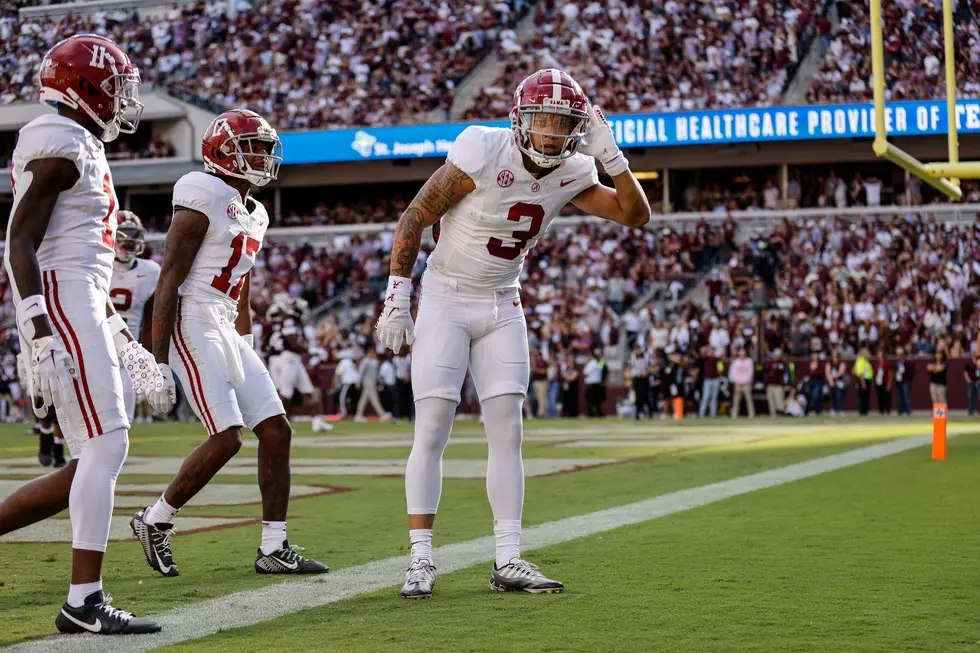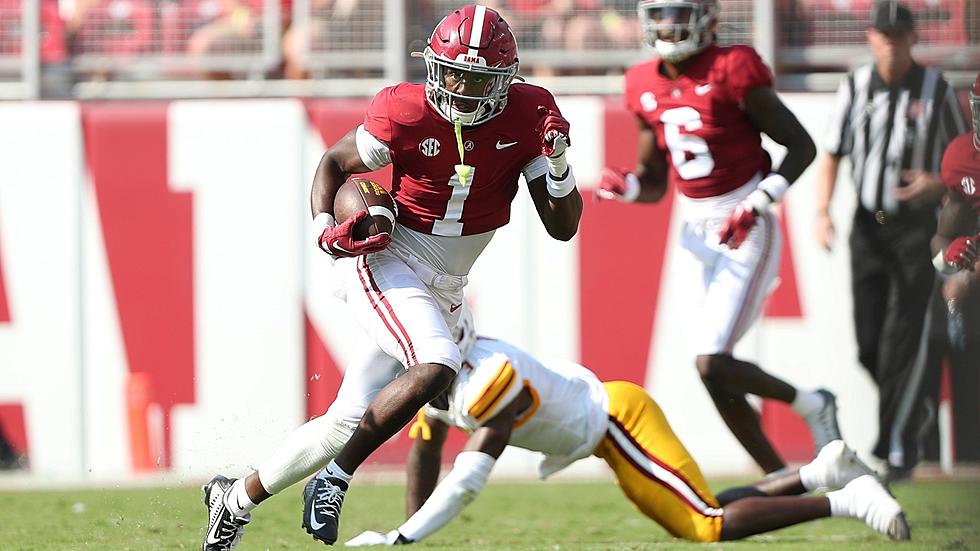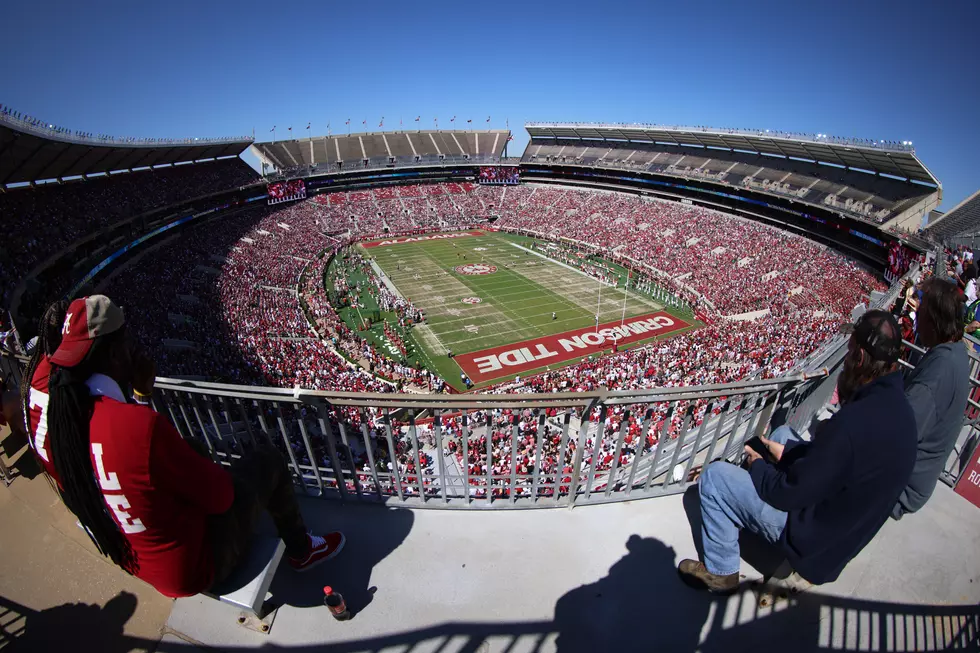
College Football is Broken; Here’s How It Could be Fixed
This is it. This is all of my incoherent ramblings of rage put into one signature piece to fix what has been broken for almost a century and a half: college football.
Let's get something straight immediately: I. Love. Good. College. Football.
I understand the roots of the sport: the regional aspect.
I understand the traditions.
I understand.
But this is not about me and my loud opinions. It's not about the December arguments of who should and should not be contending for a national championship. It's not about rankings or complaints or even fairness. It's not about all of the pomp and nonsense that comes with the sport.
It's about college football.
Maybe this is a delusion, but I love the sport before my fandom, whether it be of the Alabama Crimson Tide or the Pittsburgh Steelers. Still, I understand the Alabama fandom's desire for what has been dubbed "Joyless Murderball." Perfection is a beautiful thing to see in real-time, especially in this chaotic sport.
Nick Saban's expectation of perfection is what made Paul "Bear" Bryant and Vince Lombardi so legendary. That pursuit is why Saban is unequivocally the greatest football coach of all time.
But the system is rigged in his favor.
That's not to say he didn't earn everything he's won; he has, without question.
That's not to say the "Power 5 conferences," as they've been dubbed since the College Football Playoff was introduced, are not superior to the "Group of 5." For the most part, they are.
But we are fooling ourselves if this is something to be taken as the ultimate truth. The 2020 Cincinnati football team is the latest example, sure. Before, it was UCF in 2017, Boise State for nearly a decade before that. More often than not, some "mid-major" program has a squad that can compete with good Power 5 teams. We rarely get to see it though.
Here's why, and the first of a handful of reasons that college football is broken: scheduling.
Since Nick Saban arrived at Alabama in 2007, the Crimson Tide have played 11 FCS schools. Only in 2020, when Western Carolina was scheduled to play Alabama, and in 2008 did the Alabama Crimson Tide not play an FCS school. Alabama recorded four shutouts in those games. FCS schools have scored 77 points on Alabama, which allowed just six touchdowns in all 11 games combined. It's unnecessary. This also doesn't take into consideration the low-level Group of 5 schools on the schedule over the past 13 years. Yes, the SEC is tough. No, the Crimson Tide is not alone in this practice. It still doesn't make sense.
If the eye test is so critical in determining the four to make the CFP, why then are teams encouraged to schedule these types of games? Money? That's not Alabama's nor any other blue blood's problem.
Traditionalists constantly argue against playoff expansion with "the regular season must matter." Explain this then, please. Do only 10 or 11 of the 12 scheduled games have to matter?
Elite, blue blood programs get a pass on this, whereas Group of 5 schools are often punished for playing games that are closer to their skill level.
Why then is there no uniformed scheduling model?
Because there are 130 teams? Oh.
Problem number two: there are entirely way too many teams. I love the Group of 5. Half of this column is set out to defend it. But because the field is so large and the playoff is so small, a choice has to be made: include the Group of 5, or kick them out. Ironically, anytime someone says "kick them out" even traditionalists will run to those teams' defense because of scheduling, bowl games and the history of teams like Boise State. Yet Vanderbilt and Duke and other historically mediocre football programs stick around?
If the goal is to keep the playoff bracket small, send the teams that will never, ever get a shot packing. Make the Power 5 a truly elite corp group of about 40 or 50 schools and go from there. Keep Boise State, UCF and other proven programs and kick the Vanderbilts of the sport out though.
I say keep the Group of 5 around and expand the playoff, but we'll get to that in a second.
First, let's talk about recruiting.
The top-5 recruiting classes as ranked by 247Sports for the past five seasons have involved some mixture of the following teams with a few blips: Alabama, Clemson, Ohio State, Georgia and LSU. Yes, those are premiere programs constantly in the championship hunt with elite recruiting staffs. The rich do indeed get richer. But why are those six teams constantly bringing in the top classes? Because of the playoffs? Yes. Because of the NFL? Also yes. Because of facilities and tradition and all of those other things money buys? Obviously.
The problem is coherent with everything else. These teams are allowed to hoard players because of the simple fact that when these players see the field, the tape won't lie and the NFL will come calling. What could possibly spread out recruiting?
The most obvious solution is limiting the number of scholarships. While not exactly fair, it does force recruits into giving other programs a chance rather than "competing" for a spot that is likely already taken. Think Justin Fields here.
Second, and most central to this entire argument is the College Football Playoff.
There are a number of models I and many other college football fans would be in favor of. I'm personally fine with eight teams: The Power 5 conference champions, the top Group of 5 champions, and two at large. Rank the teams based on the BCS formula, the first round of the playoffs is played on home turf.
That's the most direct way to fix many of the lingering problems quickly while preserving the elite's power.
I came across another model that truly intrigued me, however. If you listened to the Gary Harris show Wednesday, you heard me and James Ludeman discuss it.

I argue that this format would (slowly) fix many of the problems I've outlined here and others I've omitted for space and sanity (i.e.: NIL compensation, the bowl season, The Heisman Trophy, the transfer portal... the list goes on and on.)
Much of the argument in selecting the 2020 College Football Playoff field came down to what we did and did not know about Ohio State, Cincinnati and Texas A&M. There was also a small group arguing for teams like Oklahoma and Georgia that got hot late and looked elite.
With this model, there are no questions. Win. Win the regular season. Win the conference. Win in the playoffs.
"Just Win, Baby"
-Al Davis, literally all the time.
Sure, there would be blowouts, there are blowouts in every single type of playoff bracket. There will be upsets, just like every other tournament. The elite can still be elite, just like in every other league.
Scheduling can make more sense and the regular season would actually matter because one loss won't absolutely destroy your season (see: Texas A&M.)
Recruiting is eventually spread out because winning a conference, any conference, matters. 24 teams are put on national television by earning an opportunity.
And before the inevitable shouting from the back of the room that "a 24 team playoff is way too big!" No. No, it's not. 60 or 70 Bowl games are too many. Instead of meaningless bowl games, these 24 teams get a real opportunity to be seen and make the most of an opportunity.
Besides, the FCS level does this formula with FEWER teams. Yeah, the FCS has 127 teams and still pulls this off. North Dakota State and James Madison are powerhouses at that level still, but there's no doubt about the rest of the field.
We all love college football. We all love good, meaningful football. Let's actually have it in college football.
2021 Alabama Crimson Tide Recruiting Class Signees







